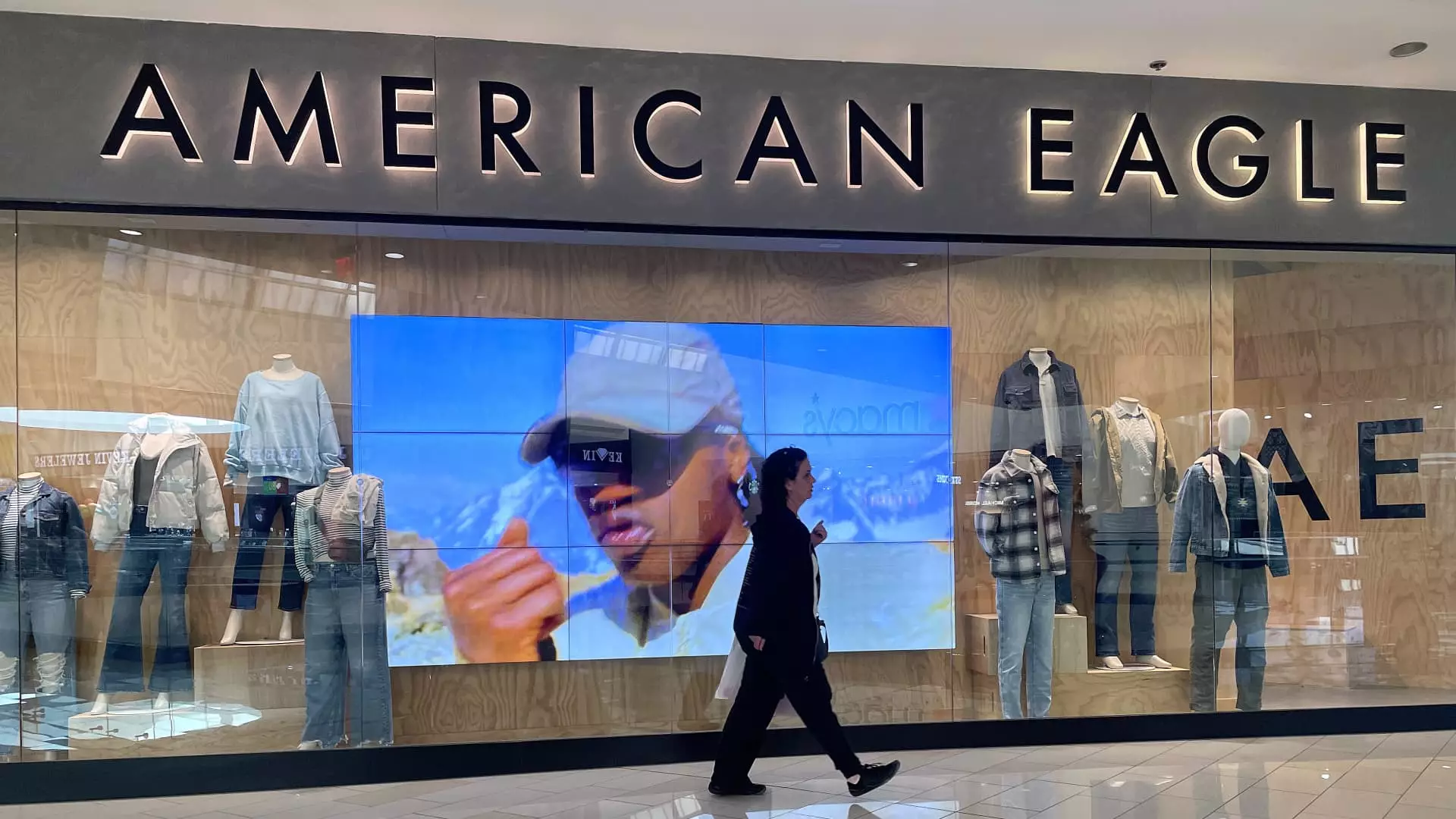Recent developments in the retail and e-commerce sectors have illuminated the ongoing struggle between brand integrity and online marketplaces. American Eagle Outfitters has initiated legal action against Amazon, claiming that the tech giant has unlawfully exploited its Aerie clothing brand to mislead consumers. This lawsuit, lodged in the U.S. District Court for the Southern District of New York, accuses Amazon of “flagrant, unauthorized use” of Aerie’s trademarks, which the brand argues has led to the proliferation of low-quality imitations that misrepresent the original clothing line.
At the heart of American Eagle’s complaint is the assertion that Amazon’s search algorithms have been hijacked to prioritize links that feature counterfeit products under the guise of legitimate Aerie items. According to the complaint, consumers who search for Aerie products are inundated with misleading links that direct them to Amazon pages showcasing “knock-offs” and rebranded alternatives. Specifically, American Eagle contends that the sidebar advertisements promise a connection to Aerie but deliver subpar alternatives not affiliated with the brand.
In a significant warning sign for Amazon, the lawsuit illustrates how the e-commerce platform’s system is purportedly being exploited to drive traffic toward competing merchandise that is not only misbranded but potentially detrimental to Aerie’s reputation. American Eagle’s strategic decision to forgo a partnership with Amazon stems from its desire to cultivate its unique brand identity while offering customers an authentic shopping experience. This lawsuit raises fundamental questions about the responsivity of large platforms to brand rights and responsibilities.
The implications of this lawsuit extend far beyond legal jargon and financial reparations. American Eagle’s claim indicates that the unauthorized misrepresentation could damage consumer trust, fostering confusion and leading shoppers to unfavorable purchasing decisions. As the complaint notes, customers seeking genuine Aerie products are misled into believing that they are shopping from an “Official Amazon Site,” which could result in dissatisfaction and an erosion of brand loyalty.
American Eagle has taken proactive steps to alert Amazon about the counterfeit issues “over a month ago”, but the response has remained insufficient, with only minimal adjustments made to the infringing listings. The onus lies heavily on Amazon to uphold the integrity of the brands that utilize its platform; failure to do so could lead to diminished confidence in e-commerce as a whole. Given that online shoppers rely on platforms like Amazon for authentic goods, the implications of counterfeit proliferation are profound.
Trademarks and counterfeiting have been troubling issues for e-commerce giants, and the scenario with American Eagle is far from an isolated incident. Amazon’s marketplace has frequently been under scrutiny for allowing counterfeit products, regardless of the measures it has taken to combat these issues. With brands like Birkenstock and Daimler AG having previously withdrawn from the platform due to similar concerns, Amazon’s reputation could potentially be in jeopardy if their counterfeiting crisis isn’t adequately addressed.
The company’s own filings have acknowledged these risks, hinting at a clear acknowledgment of the threats posed by third-party sellers. Authentic brands have continually expressed discontent over the lack of stringent protections against counterfeit merchandise. As brands increasingly rely on digital sales channels, this lawsuit underscores the urgent need for Amazon and similar platforms to implement more robust mechanisms to protect the trademarks and identities of the companies that inhabit their online ecosystems.
As American Eagle seeks an injunction and financial damages, the outcome of this lawsuit could possess significant ramifications, not only for the parties involved but for the e-commerce industry at large. If American Eagle succeeds, the ruling may strengthen brands’ rights to regulate their identities and affix accountability on online retailers. Such a precedent could encourage a more vigilant and cooperative relationship between brands and platform holders.
Ultimately, this legal battle pivots on protecting intellectual property, bolstering consumer confidence, and ensuring that brand reputations are maintained. As the retail landscape continues to shift towards e-commerce, the necessity for stringent protections and ethical practices becomes ever more pressing. Brands and platforms alike must navigate these challenges carefully to foster an atmosphere of trust and authenticity in the digital marketplace.


Leave a Reply